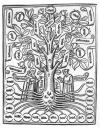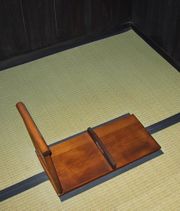 For the last decade, I’ve worked in the IT department of the same company, a Fortune 500 multinational with well over 100,000 employees. On the whole, the experience has been a positive one. It’s provided stability through difficult times, regular pay, good benefits, and reasonably interesting work
For the last decade, I’ve worked in the IT department of the same company, a Fortune 500 multinational with well over 100,000 employees. On the whole, the experience has been a positive one. It’s provided stability through difficult times, regular pay, good benefits, and reasonably interesting work
Last week, my department was informed that the company would be “expanding” its “operational excellence” program. On Monday, the suspected meaning of this rather Orwellian phraseology was revealed: I’ll be getting my walking papers. If I’d thought a bit faster, I would have worn a “pink slip” costume on Hallowe’en, despite the risk of an HR incident.
The company has gone through layoffs in the past, but up until now I’ve passed through them unscathed. Each time, those shown the door are assured that it’s nothing personal and does not reflect at all on performance. I’m not sure what effect this is supposed to have on morale, but those who remain seem to find this rather depressing: there’s no safety in personal excellence, and one’s fate lies in the hands of maliciously indifferent accounting trolls.
It was a rough few days coming to grips with this new, less-secure reality, but I’ve adjusted. If they offered me my job back, I wouldn’t take it. I’m taking my decade of real-world experience and my freshly-minted M.S. into a job market that’s looking pretty healthy. There are a few months until my job ends, so there’s plenty of time to find something interesting to do next. I’m even considering switching to working on my Ph.D. full-time for a while, but I suspect that M—— and the cats may not be too keen on living on ramen.
Herr Ziffer’s recent post on technical interviewing would seem to be all too timely . . . time to start sharpening my teeth.
Photo of an Osaka sarariman courtesy JanneM.

 M—— often reproves me for a habit she finds reprehensible: reading while in the bathroom. I shall not be moved. The mind can be engaged even as Nature is answered.
M—— often reproves me for a habit she finds reprehensible: reading while in the bathroom. I shall not be moved. The mind can be engaged even as Nature is answered. (Never fear, part 2 of “
(Never fear, part 2 of “